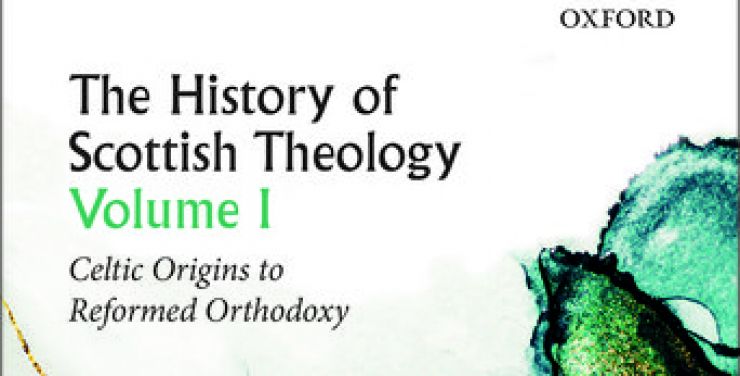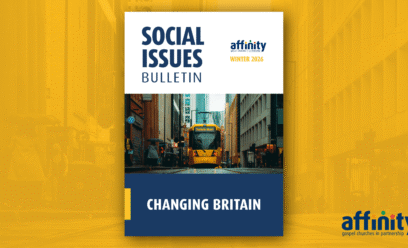Review: The History of Scottish Theology Volume 1, From Celtic Origins to Reformed Orthodoxy

The latest edition of our Foundations theological journal was published at the end of November. It contains articles and book reviews of help and encouragement to those wanting to engage with scripture and theology at a deeper level, yet still being practical and applied.
One such book review is of ‘The History of Scottish Theology Volume 1, From Celtic Origins to Reformed Orthodoxy’, David Fergusson and Mark W. Elliott (Editors), Oxford University Press, 2019, 416pp, £95
This first of a three-volume set on the history of Scottish theology is timely. It has been too long since the last reliable systematic account of theological developments in Scotland, John MacLeod’s Scottish Theology (Edinburgh: Banner of Truth, 1974). However, while advancing the understanding of Scottish theology in many ways, in other respects this volume falls short of the usefulness of works like MacLeod’s.
To begin with the negatives, the introduction paints a depressing (but realistic) portrait of the editor’s vision for Scottish theology, no longer proclaiming and advancing the truths of Scripture codified in the long Scottish Reformation, but uncertain and adrift in a pluralistic and secularising world. The volume is also academic, which brings the benefits of rigour (mostly) and a certain detachment but which leaves no real space for evaluation. As a multi-author work the chapters are inevitably uneven in their interest and quality. A chapter which should be a highlight, “Federal Theology from the Reformation to c.1677” is a particular disappointment in its lack of under-standing of the federal theology it seeks to articulate.
However, with these caveats, the volume is successful in its aims. While each reader will no doubt have wanted more in certain sections (for myself, ecclesiology and the Westminster Confession needed more space) there is a broad coverage of the pre-Reformation, Reformation and post-Reformation church. It is impossible to discuss every chapter that merits attention, but there are a few that stand out for their significance.
Richard Cross on Duns Scotus is magisterial. To capture simply and accurately the dense and convoluted thought of Scotus is no small achievement. Of particular note is how Cross outline his views on Divine simplicity, drawing out in the process differences with Aquinas. In short, Scotus has a less rigid view of simplicity than Aquinas which reminds us that “classical theism”, while an appropriate term, is variegated rather than monolithic.
Euan Cameron on “John Knox and Andrew Melville” provides a faithful view of these men in context. It is correct to conclude that “these men were in fact theologians of stark, simple principle, too often at sea in the foreign environment of courts and politics”. Ian Hazlett’s “Reformed Theology in Confessions and Catechism to c.1620” is a wonderful, punchy chapter. Not all of its suggestions should be accepted, but it does capture the vibrancy of early Reformed theology.
The stand out chapter is Guy M. Richard’s “The Covenant Idea in Mid-Seventeenth Century Scotland”. Richard outlines the common terminology of the covenants of grace, works and redemption which were used at the time in Scotland. Particularly helpful is the discussion of the covenant of grace. Richard guides readers carefully through the flexibility of language used to describe the covenant of grace in terms of external and internal participation. Speaking externally, the covenant was between “God and men”, “God and the visible church”, “God and sinners”. Speaking internally and savingly, the covenant was between “God and the redeemed”, “God… [and] The Mediator Christ, and the children that the Lord gave him”. Thus, Richard notes “the covenant… had a universal aspect corresponding to the free offer of the gospel”. But additionally, “God actually fulfils the conditions of the covenant on behalf of the elect”. As such, the covenant of grace is “bilateral in its presentation to humankind but unilateral in its administration on behalf of the elect”. For anyone wanting to understand Reformed (not just Scottish) covenant theology, this chapter is a must read.
This links to another chapter in the volume which deals with covenant theology, this time in the context of the early eighteenth century “Marrow controversy” which touched on legalism, antinomianism, the free offer of the gospel and may other vital topics. At the end of his chapter Stephen Myers rightly concludes that supporters of the Marrow proposed “from within a robustly Westminsterian system, a federal theology structurally resistant to the legalising tendencies so often alleged against federal thought” and that their “evangelical federalism is warmly evangelistic not in spite of, but because of, its adherence to a thoroughly Westminsterian federalism”. However, the chapter as a whole is deeply disappointing. Its fundamental thesis is that while supporters of the Marrow were “orthodox”, so were their opponents. As such there was no “legalism” present in the Scottish church, just two differing outworkings of tensions inherent in earlier Scottish covenant theology. But Haddow’s covenant theology, as (rightly) presented here, is not the covenant theology of Rutherford, Gillespie, Durham and Dickson.
Guy Richard’s chapter shows how easily seventeenth-century theology viewed the covenant of grace as being “with sinners” but for Haddow in “the Covenant of Grace… the indefinite category of ‘sinner’ had already given way, logically, to the categories of ‘elect sinners’ and ‘reprobate sinners’”. That is also why Haddow’s doctrine of the gospel offer is different to that of Rutherford et al. He has fundamentally altered the outward administration of the covenant of grace. James Durham (1622-58), for one, unlike Haddow, was very comfortable with the idea of the gospel as a gift. Every one of the leading federal theologians of the mid-seventeenth century would have objected to the summary of Haddow’s teaching that “the Gospel was to be offered not to sinners indefinitely, but to sinners who, by their divinely-enabled obedience to the gospel commands to repent and believe, had manifested their identity among the definite group of the elect”. Sinclair Ferguson’s recent treatment of this controversy in The Whole Christ: Legalism, Antinomianism, and Gospel Assurance-Why the Marrow Controversy Still Matters (Wheaton: Crossway, 2016) is much, much better.
For those with an interest in Scottish church history this set will prove invaluable. For others, the prohibitive price is not worth the investment. But certain chapters are definitely worth reading, whatever your interests, if you come across the volume in a library.
Donald John MacLean, Elder, Cambridge Presbyterian Church
Stay connected with our monthly update
Sign up to receive the latest news from Affinity and our members, delivered straight to your inbox once a month.



